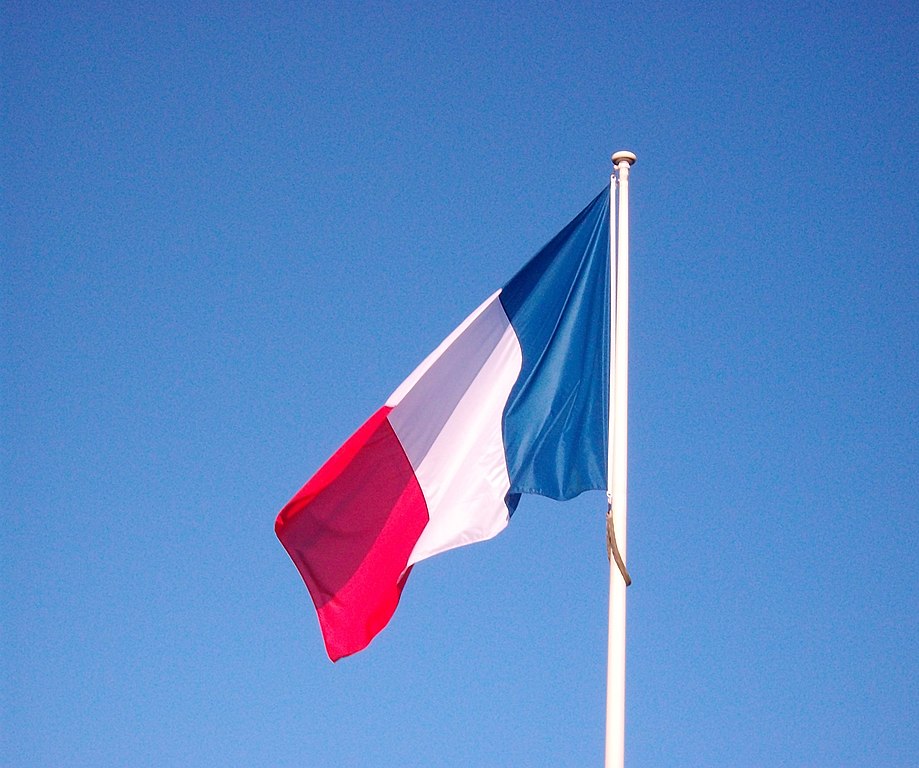
Anti-French sentiment has been spreading in francophone Africa
“[African critics] no longer even need to prove that France supports jihadism. [They] just say so.”
Unprecedented waves of anti-French sentiment have swept over many francophone African countries over the past four years. These manifest in large-scale civil society protests in Mali and Burkina Faso, the targeting of French counterterror convoys throughout the Sahel, and accusations from both Mali and the Central African Republic that France is actively funding terrorists. [i]
The reasons why anti-French sentiment has become so pervasive are detailed in the accompanying article from the pan-African news aggregator Africanews.com. . The article is based on the findings of an upcoming report from noted French think tank, the Institute for International Relations (IFRI). The report suggests there are three issues: African critiques of the French military and counterterrorism presence, a lack of development, and disdain over the CFA (Communauté financière d’Afrique) currency. The report also notes that France is consistently scapegoated by African political and military leaders for their own failures: “It is always an argument that comes to explain, and ultimately absolve, the responsibility of these elites.” The pervasiveness of simple untruths maligning French military and counterterror presence in the Sahel—what some researchers have called “Afrancaux News”[ii]—is similarly driving the pervasiveness of the anti-French sentiment. The IFRI report notes that African critics “no longer even need to prove that France supports jihadism. [They] just say so.” While Russian disinformation campaigns vilifying France and promoting Russia exacerbate the sentiment, the report’s authors recognize that France itself does bear some responsibility for its declining reputation on the continent, with French leaders long believing that anti-French sentiment was merely tied to episodic crises and was not part of longstanding grievances tied to the colonial legacy of France in Africa. Understanding African public opinion remains imperative as many countries in francophone Africa—Mali, Burkina Faso, the Central Africa Republic most prominently—move even further away from France and toward Russia.[iii]
Sources:
“Pourquoi le sentiment anti-français imprègne l’Afrique francophone? (Why is anti-French sentiment so pervasive in Africa?) Africanews.com (pan-African news aggregator),” 15 June 2023. https://fr.africanews.com/2023/06/14/pourquoi-le-sentiment-anti-francais-impregne-lafrique-francophone/
Anti-French rhetoric in French-speaking Africa has spread beyond the educated urban elite, and the phenomenon could “take root for a long time,” says Alain Antil, a researcher at the French Institute of International Relations (Ifri), in an interview.
In recent years, criticism of France’s policies has been accompanied by violent demonstrations against French companies such as Total and against diplomatic representations in Chad, Mali, and, more recently, Burkina Faso.
The depth of the phenomenon is “nothing like what we saw in previous decades,” points out Antil, who heads Ifri’s Sub-Saharan Africa Centre and who on Wednesday, with his colleague Thierry Vircoulon, is publishing a study devoted to “Themes, actors, and functions of anti-French discourse in French-speaking Africa”.
We are a long way from the days ”when highly articulate criticism (…) was confined to leading circles of intellectuals and sometimes, during serious political crises, spilled out onto the streets,” he says.
It is striking to note that critics no longer even try to demonstrate untruths: ”We no longer even need to prove that France supports jihadism. We just say so,” he observes.
For the researcher, the intensification of anti-French sentiment can be explained by ”disappointing economic and political trajectories” in countries where the population had once pinned their hopes on economic progress and democracy.
Faced with the failure of their own policies, the leaders of these countries resort to ”scapegoating techniques”: “France is ultimately responsible for the non-development of these countries and the corruption of their elites,” explains Antil. ”It is always an argument that comes to explain, and ultimately absolve, the responsibility of these elites.”
At the same time, this anti-French rhetoric has been able to flourish because French leaders have been slow to react.
Until very recently, the French authorities ”were in a kind of denial,” seeing it simply as a correlation with crises, ”outbreaks of hives” or manipulation by the Russians, explains the researcher.
The study does show ”a link between this Russian propaganda war and certain segments of African social networks.”
It is undeniable that social networks have massively circulated false information, such as videos or photos showing French soldiers ”supposedly” stealing gold or ”consorting with jihadists,” stresses Alain Antil.
But the expert warns against the temptation to explain everything in terms of Russian propaganda.
“Obviously, the Russians are playing their part, having an impact and funding anti-French campaigns,” he says.
However, he warns that it would be a mistake to think that ”explaining to Africans that they are being manipulated by the Russians will put an end to it.”
Far from abating, this rhetoric will take root ”for a long time in the politics and public opinion of these countries,” he adds, citing three factors fuelling anti-French sentiment: the military presence, the development aid policy, and the currency.
While the number of French troops has fallen drastically from 30,000 in the early 1960s to around 6,100 today, ”interventionism has not diminished,” notes the researcher.
Notes:
[i] For more information on claims that France is funding African terrorists, see: Jason Warner, “Mali Claims France Funded Terrorists; France Denies,” OE Watch, 10-2022. https://community.apan.org/wg/tradoc-g2/fmso/m/oe-watch-articles-2-singular-format/428171
[ii] For more information on the anti-French counterterror sentiment, see: Jason Warner, Lassane Ouedraogo, and Matthew Kirwin, “The Fake News Phenomenon in the Sahel: ‘Afrancaux News’ and the Postcolonial Logics of Polemical Information,” African Studies Review, 65 (4): December 2022, 911 – 938.
[iii] For more on African states’ growing alliances with Russia, see: Jason Warner, “Top Ugandan General Adds to List of Growing Pro-Russian African Military Personnel” OE Watch, 05-2023. https://fmso.tradoc.army.mil/2023/top-ugandan-general-adds-to-growing-list-of-pro-russian-african-military-personnel/; Jason Warner, “Mali Defends Reliance on Russian Counterterrorism Assistance,” OE Watch, 03-2023. https://community.apan.org/wg/tradoc-g2/fmso/m/oe-watch-articles-2-singular-format/437332; Jason Warner, “Burkina Faso Fights Terrorism With Recruits and Russia,” OE Watch, 02-2023. https://community.apan.org/wg/tradoc-g2/fmso/m/oe-watch-articles-2-singular-format/436264; Jason Warner, “Burkina Faso: A Bellwether on Russian and French Presence,” OE Watch, 11-2022. https://community.apan.org/wg/tradoc-g2/fmso/m/oe-watch-articles-2-singular-format/429302
Image Information:
Image: Anti-French sentiment has been spreading in francophone Africa
Source: https://commons.wikimedia.org/wiki/File:French_Flag_(5089610330).jpg
Attribution: CC BY 2.0
